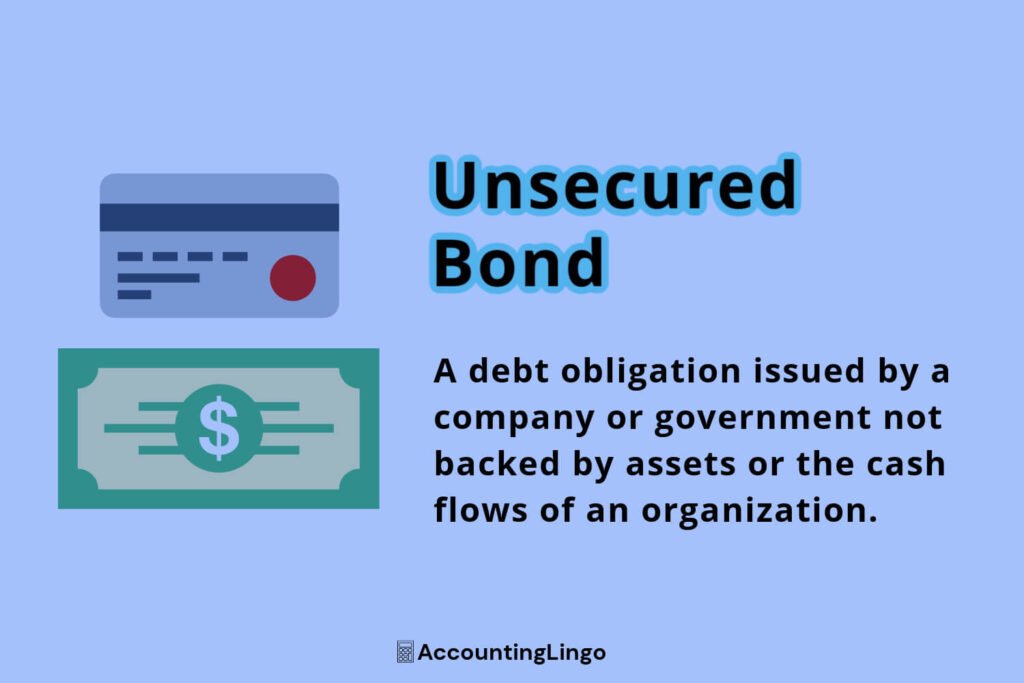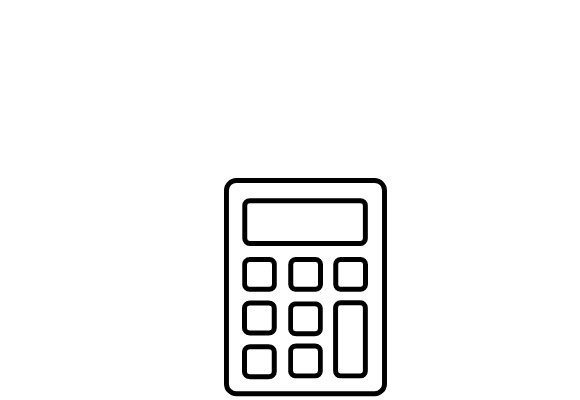
What is an Unsecured Bond?
An unsecured bond is a debt obligation issued by a company or government not backed by assets or the cash flows of an organization.
“A bond only backed by integrity.” -University of North Carolina
What Does Unsecured Bond Mean?
Unsecured bonds, also known as debentures or notes, promise to pay bondholders their principal investment amount plus interest at a predetermined rate. Companies and governments often issue unsecured bonds to raise capital. Funds are often used to make new investments or to refinance existing debt. Bond obligations appear on the liability side of an organization’s balance sheet within their financial statements.
Secured v Unsecured Bond
The primary difference between a secured bond and an unsecured bond is collateral backing. Secured bonds are backed by specific assets or cash flows of the issuer. Therefore, a bondholder may recover their investment if the issuer defaults on the bond by seizing the assets or cash flows pledged as collateral.
There is no collateral backing with an unsecured bond. Therefore, if the issuer defaults on the bond, the bondholders have no specific assets or revenue streams to seize. Unsecured bondholders have limited recourse.
Benefits of an Unsecured Bond
Several advantages include:
- Higher returns are a primary benefit of unsecured bonds over secured bonds. Due to their higher risk, they typically carry a higher interest rate, which can be attractive to investors seeking higher returns.
- Easier to issue since they do not require collateral. Setting up the bond offering without collateral backing is more simplistic.
- More Flexibility for the issuer as far as usage of funds. Capital raised can be used in a more flexible manner since it is not backed by specific assets.
Risks with an Unsecured Bond
They also come with added risk including:
- Credit risk associated with the issuers is generally considered a primary risk. In the absence of any collateral backing, bondholders are dependent on the creditworthiness of the issuer to recover their investment. Furthermore, if the issuer defaults, bondholders may lose their entire investment.
- Interest rate risk is also a concern since bonds are usually longer-term investments. If interest rates rise, bond values may fall, resulting in a loss for bondholders.
- Inflation risk can also threaten bondholder profits. Fixed interest payments on bonds may not keep pace with inflation. Therefore, the purchasing power of bondholder returns may decline over time.
Examples
Many governments and companies around the world issue unsecured bonds including:
- United States Government: The U.S. government regularly issues unsecured bonds to fund government operations. The government guarantees bond creditworthiness.
- Apple Inc: Unsecured bonds were issued to fund share buybacks and dividend payments. Apple guarantees their creditworthiness.
Additional Resources
Similar concepts:
